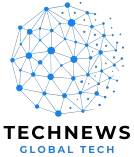The “godfather of AI” is issuing a warning about the technology he helped create.
Geoffrey Hinton, a trailblazer in artificial intelligence, has joined the growing list of experts sharing their concerns about the rapid advancement of artificial intelligence. The renowned computer scientist recently left his job at Google to speak openly about his worries about the technology and where he sees it going.
“It is hard to see how you can prevent bad actors from using it for bad things,” Hinton said in an interview with The New York Times.
Hinton is worried that future versions of the technology pose a real threat to humanity.
“The idea that this stuff could actually get smarter than people — a few people believed that,” he said in the interview. “But most people thought it was way off. And I thought it was way off. I thought it was 30 to 50 years or even longer away. Obviously, I no longer think that.”
Hinton, 75, is most noted for the rapid development of deep learning, which uses mathematical structures called neural networks to pull patterns from massive sets of data.
Like other experts, he believes the race between Big Tech to develop more powerful AI will only escalate into a global race.
Hinton tweeted Monday morning that he felt Google had acted responsibly in its development of AI, but that he had to leave the company to speak out.
Jeff Dean, senior vice president of Google Research and AI, said in an emailed statement: “Geoff has made foundational breakthroughs in AI, and we appreciate his decade of contributions at Google. I’ve deeply enjoyed our many conversations over the years. I’ll miss him, and I wish him well! As one of the first companies to publish AI Principles, we remain committed to a responsible approach to AI. We’re continually learning to understand emerging risks while also innovating boldly.”
Hinton is a notable addition to a group of technologists who have been speaking out publicly about the unbridled development and release of AI.
Tristan Harris and Aza Raskin, the co-founders of the Center for Humane Technology, spoke with “Nightly News” host Lester Holt in March about their own concerns around AI.
“What we want is AI that enriches our lives. AI that works for people, that works for human benefits that is helping us cure cancer, that is helping us find climate solutions,” Harris said during the interview. “We can do that. We can have AI and research labs that’s applied to specific applications that do advance in those areas. But when we’re in an arms race to deploy AI to every human being on the planet as fast as possible with as little testing as possible, that’s not an equation that’s going to end well.”
An open letter from the Association for the Advancement of Artificial Intelligence, which was signed by 19 current and former leaders of the academic community, was released last month warning the public of the risks around AI and the need for collaboration to mitigate some of those concerns.
“We believe that AI will be increasingly game-changing in healthcare, climate, education, engineering, and many other fields,” the letter said. “At the same time, we are aware of the limitations and concerns about AI advances, including the potential for AI systems to make errors, to provide biased recommendations, to threaten our privacy, to empower bad actors with new tools, and to have an impact on jobs.”
Hinton, along with scientists Yoshua Bengio and Yann LeCun, won the Turing Award in 2019, known as the tech industry’s version of the Nobel Prize, for their advancements in AI.
Hinton, Bengio and LeCun were open about their concerns with AI but were optimistic about the potential of the technology, including detecting health risks earlier than doctors and more accurate weather warnings about earthquakes and floods.
“One thing is very clear, the techniques that we developed can be used for an enormous amount of good affecting hundreds of millions of people,” Hinton previously told The Associated Press.
